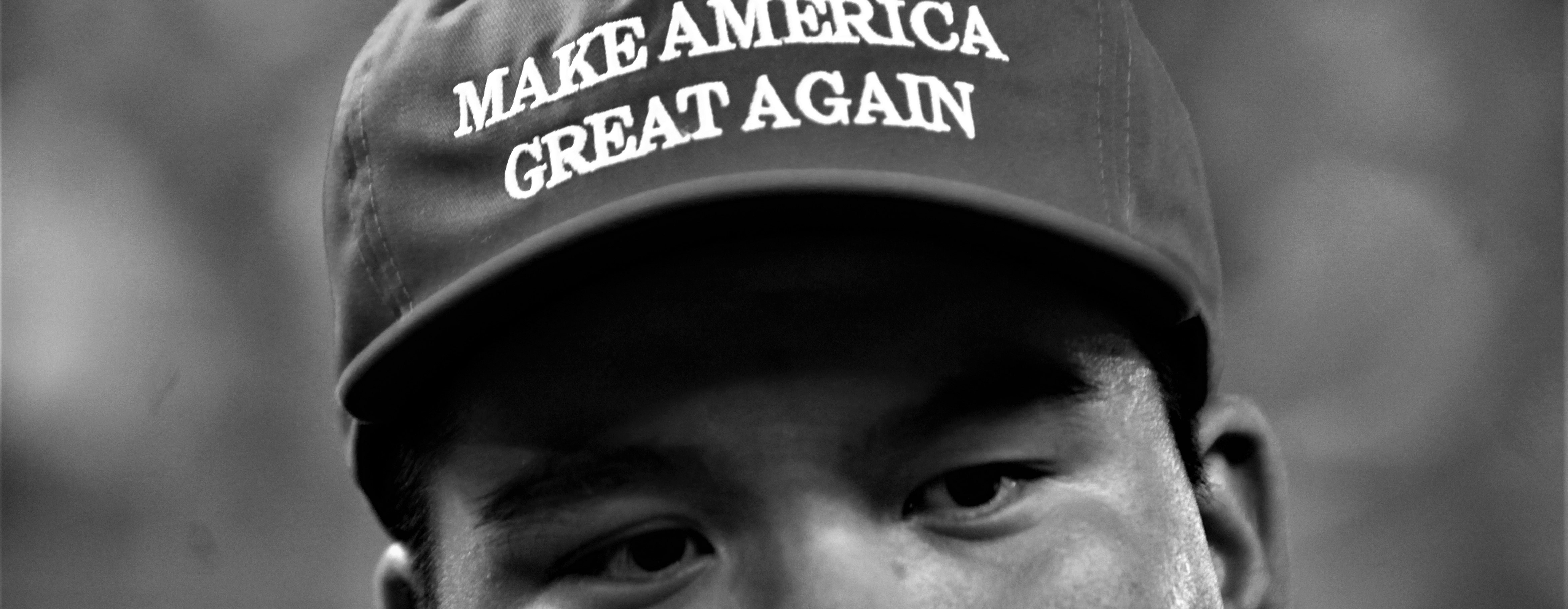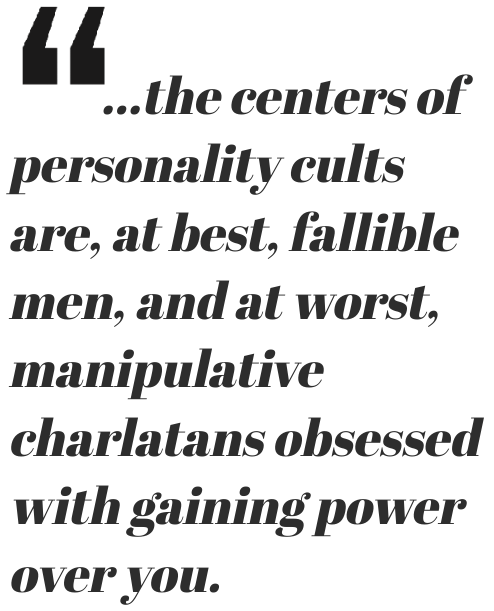Did Trump Lose the Shutdown Fight? Depends on Who You Ask?
By Ryan Lindsey
WAL Reader is a quarterly journal from We Are Libertarians. It is available online, on Kindle, or in print. Get yours by visiting WALReader.com.
I was convinced that Trump’s total cave on the longest federal shutdown in history was a mortal wound to Trump. If he had kept the shutdown going indefinitely or until congress finally surrendered border wall funding to him, I was fully convinced that the 2020 race was his to lose. I was equally certain that if he was the one to blink first, that the tables would flip, and his reelection would be nearly impossible against any but a few of the DNC’s contenders.
But then, two days after the shutdown ended, I overheard a conversation among several people who I know to be fundamentally decent and intelligent individuals who had gladly voted for Trump in 2016. They were discussing the end of the shutdown, but what they were saying didn’t align at all with what I (perhaps arrogantly) had assumed they would be saying. What I heard from them was nothing but praise for their president – he had been perfectly reasonable and given the Pelosi and the Democrats every opportunity to end the shutdown on their own; he was just making sure that federal workers would begin getting paid again (after not caring about that for over thirty days); he was simply setting the stage to better justify executive action and a national emergency later on; etc.
An Isolated Incident of Loyalty?
I was surprised, and frankly I still can’t empathize with their sentiments – if I had voted for Trump based on his campaign promises and “tough guy, never-back-down” persona, I would have been livid at the absolute disaster of the shutdown, which was rendered meaningless by his willingness to let Pelosi walk all over him. Why weren’t they fuming, why didn’t they feel betrayed? I thought (and hoped) that they were just a minority of Trump supporters. Surly most of his 2016 voters felt the same indignation and sense of being duped as Ann Coulter, Steve Bannon, Michael Savage, and many others in the conservative-populist movement.
No, I had assumed wrong again. A couple more days after overhearing that conversation (four days after the shutdown ended) I tuned into the local conservative FM talk radio station on my commute to work. I was curious to see what the local morning show host, Nick Reed (who, to his credit is often extremely nonpartisan and has strong libertarian streaks on many issues), had to say about the shutdown ending and the backlash Trump has received from many of the more “prestigious”, “elite” conservative opinion directors. For most of my drive, Reed was taking calls from listeners who were giving their two cents about Trump reopening the government. My dread over the state of the GOP increased as one after another, callers justified the president’s actions. Narratives of 4, 5, 6, 12D chess filled the airwaves.

Now, I personally do not buy into this whole idea that Trump is actually a political chess master. I think the claim that a political novice with no knowledge of how the gears of bureaucracy and congress turn is somehow the most genius man to ever sit in the White House is absolutely bogus and has no backing at all in reality. In my opinion, the president has just slightly more political acumen in his whole body as the lowliest congressional aid has in their right arm (that is not an indictment on his character or abilities as a campaigner – those are separate issues all together). I still firmly believe that Trump lost the shutdown battle and that in any rational world the whole fiasco would have absolutely crippled his reelection campaign. Clearly that wasn’t the case though. Trump’s 2016 supporters either didn’t care about their man’s defeat or they were convinced that it wasn’t a defeat at all.
The Power is His
Of course, a couple of weeks after caving into Pelosi and Schumer, Trump signed a declaration of a national emergency in regard to the border and his cherished wall project. He couldn’t get what he wanted from congress, so he would use alleged executive authority to get his funds instead. While this move was received with horror from most members of the mainstream media and many federal officials, it was not an unprecedented powergrab. American presidents have spent the better part of two centuries acquiring power that is not constitutionally theirs – particularly the previous two, George W. Bush and Barack Obama.
By this point, it was not surprising at all when I almost immediately saw conservatives who had denounced Obama’s powergrabs cheer on this act of executive overreach by Trump. Even some people who I had considered libertarians were supportive of this move. Republican congressmen like Thomas Massie and Justin Amash who spoke out against the national emergency declaration received a solid thrashing from conservative media and activists.

But of course they did – those people were not truly opposed to the executive actions of Obama and Bush, they were just opposed to who was taking the action. In their minds, Trump not only needed but deserved this power.
Loyal to a Fault
I wasn’t taking one critical factor into account: you should never underestimate how loyal Trump’s supporters are to him personally. They’re not loyal to his ideals or his policy proposals, they’re loyal to him. If Trump says he won a fight, then he won that fight in the minds of the Trump cultists, regardless of what the facts or reason say.
The cult of personality that is seducing the GOP has finally changed – Ronald Reagan has lost his throne to Trump.
 Embarrassingly, this is a mistake I have made with Trump multiple times since he first announced his plans to take the presidency nearly four years ago. I underestimated his supporters’ unconditional loyalty to him all throughout the entire Republican primary and general campaign. When he won the election, I was forced to take a step back and admit that to most of his supporters, Trump’s actions ultimately did not matter. All that mattered to them was that he was him. But still, I forget that lesson occasionally. Why?
Embarrassingly, this is a mistake I have made with Trump multiple times since he first announced his plans to take the presidency nearly four years ago. I underestimated his supporters’ unconditional loyalty to him all throughout the entire Republican primary and general campaign. When he won the election, I was forced to take a step back and admit that to most of his supporters, Trump’s actions ultimately did not matter. All that mattered to them was that he was him. But still, I forget that lesson occasionally. Why?
Maybe it’s because I’m not above the fray and have also fallen into different cults of personality at times. Upon honest reflection, I do think this is a temptation I have become better at resisting, but still, maybe I make myself forget about the Trump cult of personality because I am ashamed of my own follies in that area. Ask anyone who knew me during 2012 to 2016 and I’m sure they could tell you all about my obsession with Ron and Rand Paul, and the blinders I wore when it came to their shortcomings. It’s not a part of my past that I am particularly proud of in that regard.
Personality cults are just as much a threat to society as partisanship is – maybe if we are all able to reflect on our actions and loyalties (and the actions of those we are loyal to) we can begin to root out the cults that lead us. In my experience, the centers of personality cults are, at best, fallible men, and at worst, manipulative charlatans obsessed with gaining power over you. I hope that the Cult of Trump begins to dissolve before the next election (and that other personalities will not rise to take his place). If we’re going to live in a democratic republic, I’d rather live in one where leaders were chosen based on their character and proposals, rather than simply their persona.



